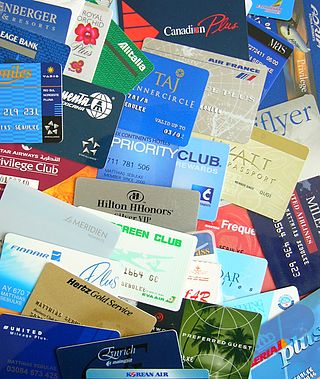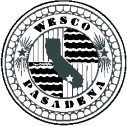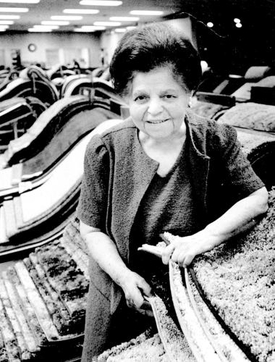
A loyalty program or a rewards program is a marketing strategy designed to encourage customers to continue to shop at or use the services of one or more businesses associated with the program.

Warren Edward Buffett is an American businessman, investor, and philanthropist who currently serves as the chairman and CEO of Berkshire Hathaway. As a result of his investment success, Buffett is one of the best-known investors in the world. As of June 2024, he had a net worth of $135 billion, making him the tenth-richest person in the world.

Berkshire Hathaway Inc. is an American multinational conglomerate holding company headquartered in Omaha, Nebraska. Founded in 1839 as a textile manufacturer, it transitioned into a major conglomerate starting in 1965 under the management of chairman and CEO Warren Buffett and vice chairman Charlie Munger.

Trading stamps were small paper stamps given to customers by merchants in loyalty programs in the United States, Canada and the U.K. which predated the modern loyalty card-based and online programs. Like the similarly-issued retailer coupons, these stamps only had a minimal cash value of a few mils individually, but when a customer accumulated a number of them, they could be exchanged with the trading stamp company for premiums, such as toys, personal items, housewares, furniture and appliances. In trading stamp programs in Hong Kong continued to operate.

In marketing, a coupon is a ticket or document that can be redeemed for a financial discount or rebate when purchasing a product.

See's Candies is an American manufacturer and distributor of candy, particularly chocolates. It was founded by Charles See, his wife Florence, and his mother Mary in Los Angeles, California in 1921. The company is now headquartered in South San Francisco, California. See's kitchens are located at its headquarters and maintained at its original factory in Los Angeles, where there are also retail shops. It also has an office in Carson, California. The company has been owned by Warren Buffett's Berkshire Hathaway Corporation since 1972.

Wesco Financial Corporation was an American diversified financial corporation headquartered in Pasadena, California. Wesco was originally the holding company for Mutual Savings, a savings and loan association. Mutual Savings' thrift operations were sold to CenFed Bank in 1993. It was for a long time 80.1% owned by Blue Chip Stamps, which is now completely and fully owned by Berkshire Hathaway, which is controlled by legendary investor Warren Buffett. Charlie Munger, the vice-chairman of Berkshire Hathaway and Buffett's business partner, was CEO and chairman of Wesco from 1984 to 2011. Munger, formerly a practicing attorney, is known for his straight-shooting style and his conduct at the now discontinued Wesco shareholder meetings in Pasadena, where he used to interact with the outside investors at considerable length. In June 2011, Berkshire Hathaway acquired the approximately 20% of Wesco that it did not already own, making it a wholly owned subsidiary of that company.

Flybuys is an Australian customer loyalty program equally owned by the Coles Group and Wesfarmers through joint venture Loyalty Pacific. Members can accrue points by shopping at Coles Group brands, certain Wesfarmers brands, and some third-party partners like HCF Health Insurance, Coles Express and Optus. Points can then be redeemed for money off purchases at Coles Supermarkets, Coles Express, Liquorland, Kmart, Officeworks, Target and mycar, as well as holidays and household goods.

Air Miles is a group of loyalty programs operated by different companies in each region where the brand operates - the programs are available in Canada, the Netherlands, Bahrain, Qatar, and the United Arab Emirates. Points are earned on purchases at participating merchants and can be redeemed against flights with specific airlines.
Revco Discount Drug Stores, once based in Twinsburg, Ohio, was a major drug store chain operating through the Ohio Valley, the Mid-Atlantic states, and the Southeastern United States. The chain's stock was traded on the New York Stock Exchange under the ticker symbol RXR. Revco was sold to CVS Pharmacy for $2.8 billion in February 1997. When it was sold, the chain had over 2,500 stores.

Woolworths Supermarkets is an Australian chain of supermarkets and grocery stores owned by Woolworths Group. Founded in 1924, Woolworths is currently Australia's largest supermarket chain with a market share of 33% as of 2019.

Giant Food of Maryland, LLC is an American regional supermarket chain with 166 stores located in Delaware, Maryland, Virginia, and the District of Columbia. It is a subsidiary of Ahold Delhaize, and headquartered in unincorporated Prince George's County, Maryland, near Landover.
Ajit Jain is an Indian-American executive who is the Vice Chairman of Insurance Operations for Berkshire Hathaway as of January 10, 2018. Ajit Jain is an older cousin of Anshu Jain, who was the former Co-CEO of Deutsche Bank.
Loyalty marketing is a marketing strategy in which a company focuses on growing and retaining existing customers through incentives. Branding, product marketing, and loyalty marketing all form part of the customer proposition – the subjective assessment by the customer of whether to purchase a brand or not based on the integrated combination of the value they receive from each of these marketing disciplines.

Rose Blumkin was an American businesswoman who founded the Nebraska Furniture Mart in 1937. Businessman Warren Buffett said of her, "One question I always ask myself in appraising a business is how I would like, assuming I had ample capital and skilled personnel, to compete with it. I’d rather wrestle grizzlies than compete with Mrs. B and her progeny. They buy brilliantly, they operate at expense ratios competitors don’t even dream about, and they then pass on to their customers much of the savings.

Helzberg Diamonds is a jewelry retailer founded in 1915 by Morris Helzberg that has 210 stores in 36 US states.

Everyday Rewards, known as Woolworths Rewards between 2015 and 2020, is a customer loyalty program owned and operated in Australia and New Zealand by Woolworths Group. Members can earn points in the program from Woolworths Group companies, as well as partner brands like Ampol, Bupa and Origin Energy. Qantas Frequent Flyer program members can convert 2,000 Everyday Rewards points to 1,000 Frequent Flyer points as part of a partnership between the two companies.

Pick-N-Pay Supermarkets was a chain of supermarkets which operated in the Greater Cleveland, Ohio area. The company's origin can be traced to the year 1928 and the opening of a small dairy store in Cleveland Heights, Ohio by Edward Silverberg who then expanded his operation and created a chain of such stores which he called Farmview Creamery Stores. In 1938, Mr. Silverberg opened a supermarket on E. 185th Street which he called Pick-N-Pay. In 1940, he changed the name of all his stores to Pick-N-Pay Supermarkets. He grew the chain to a total of 10 stores and in 1951 sold the company to Cook Coffee Company. Under Cook Coffee's ownership, the chain continued to grow through expansion and through Pick-N-Pay's acquisition of the Foodtown supermarkets in 1959. In 1972, it was sold to a group of private investors led by Julius Kravitz, who continued the use of the brand for the newly independent company. Principal competitors in the Greater Cleveland market were the Fisher-Fazio-Costa, Stop-N-Shop, and Heinen's grocery chains.
Piggly Wiggly Carolina Co. was a franchise of the Piggly Wiggly chain of supermarkets, based in South Carolina in the United States. The company entered a process of disposal of assets and dissolution in 2014.














